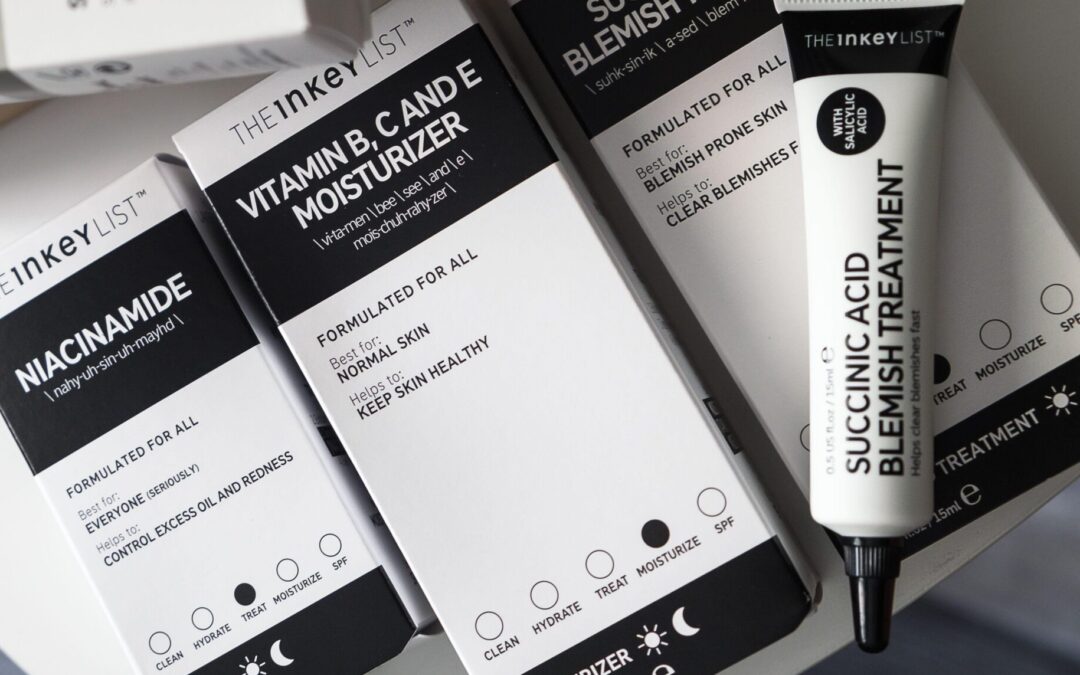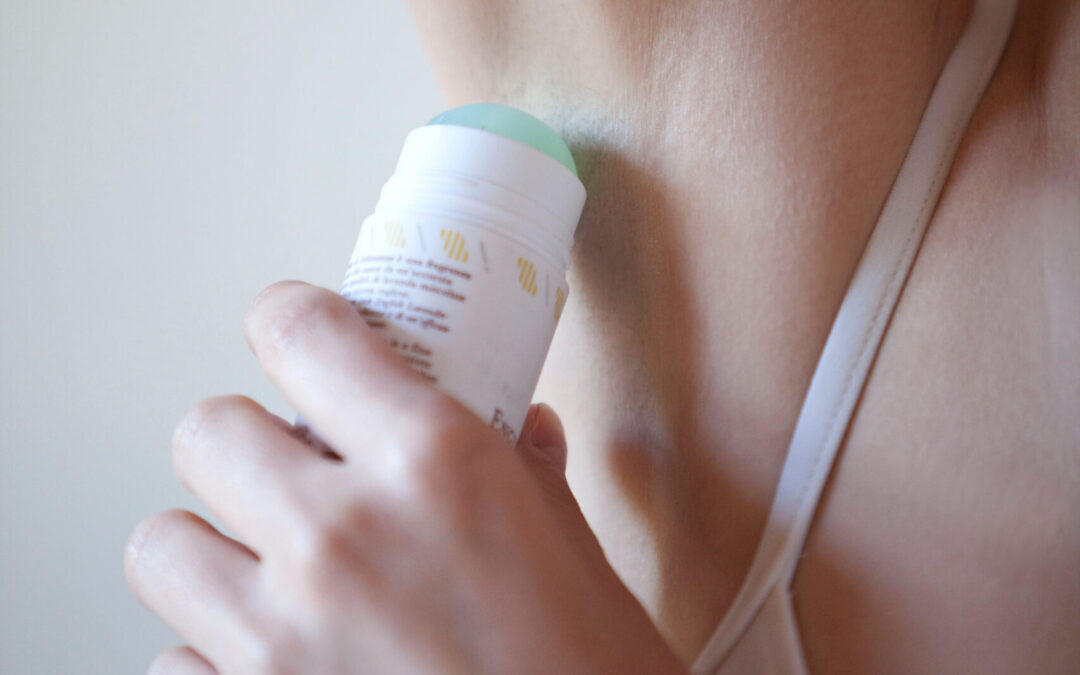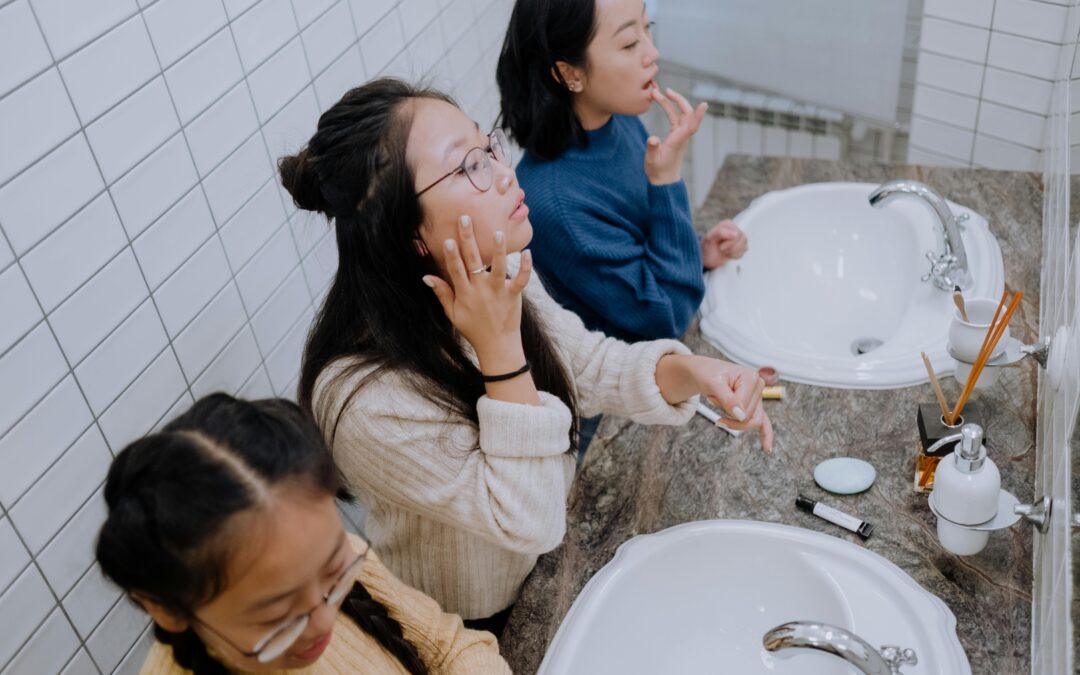If you’ve been anywhere on the internet in the last few months, you’ll probably have heard of an app claiming to give your skincare products a rating based on their ingredient list.
This is the Yuka App, which has been making the rounds online for telling people their routine is ‘toxic’ and giving out alarmingly low scores on internet favourites.
It’s described as a free healthcare app designed to help people ‘decipher product labels and analyse the health impact’ and give them a ‘rating’ out of 100 from excellent, good, mediocre, to poor.
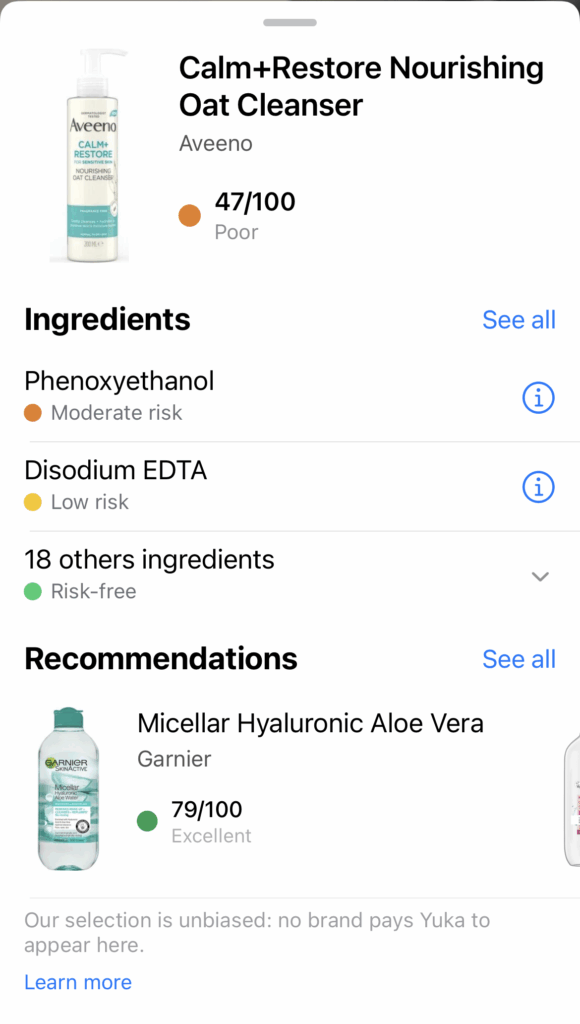
What is making my products ‘bad’?
According to the Yuka website, they check cosmetics for ingredients including ‘endocrine disruptors, carcinogens, allergens, pollutants or irritants.’
As is pretty obvious, anything that could cause any allergic reaction or irritate your skin is good to be wary of, especially for those with specific skin types or conditions.
However, we often see the word ‘endocrine disruptor’ thrown around as a buzzword online by people who don’t always understand what it really means.
An endocrine disruptor is anything that disrupts the hormonal balance in your body, which is regulated to work a certain way, with certain levels of hormones such as insulin or adrenaline.
Alex Padgett, a cosmetic chemist from the USA, explains the misconstrued science:
“Do people even know what hormone disruptors are? Girl, we are on birth control. It’s frustrating, because everything, I would almost guarantee, is going to disrupt your hormones at some point, if you exaggerate the concentration.
What they (Yuka) fail to take into account with most ingredients is that the studies they’re pulling from are inhalation studies, and I’m not snorting my skincare.”
Dermatologists online have been knocking the app, saying it has no backing and can often lead to scare mongering people into abandoning their medical skincare.
Alex explains the ironic reality of scaremongering.
“Chemists are not adding ingredients to your products that are going to be negatively affecting your skin. For the most part, if something is allowed in skincare, there has been some extensive testing done to show it’s safe. People are often misconstruing data and evidence, and trying to twist it to make it sound way worse than it is, for clicks and views.
That’s where it gets dangerous. I think that what we’re putting on our face is so minuscule compared to something like your alcohol consumption, which is going to be so much worse for you. People will go all hard for your sunscreen which has a ‘bad’ ingredient in it that’s ‘causing cancer’, while they’re puffing on a vape.
If you expose your body to water at too high of a concentration in the wrong way, that’s going to kill you. That doesn’t mean we go take everything that has water in it and say, “Nope, bad. Avoid.” That’s the whole issue.”
Read more MythBusters here: We tried ‘Natural’ Deodorant for a week and this is how it went… – Radiance
She also says much of the data backing behind the app is made up of out-of-context studies.
“Obviously there are some instances where it’s very important to be cautious about the ingredients that are in your skincare, but it annoys me because they fail to account for the toxicology testing that’s already been done in the actual relevant application. Because a lot of times there are plenty of studies that have been done that show that it’s totally safe if it is still used in cosmetics.”
There are regulations and reports, where they have done the testing to see if we exaggerate the concentration, and the exposure 500 times more, is this ingredient still safe? Most of the time it is. They’re going to take something and say, it was injected under the skin of rats and it caused a problem, but I’m not injecting my skincare under my skin. You’re talking about a 100% concentration of an ingredient that’s only used in cosmetics at a maximum of 0.1%.”
A discourse often trending online surrounds the ingredients in sunscreen, which has led to some people avoiding the product entirely.
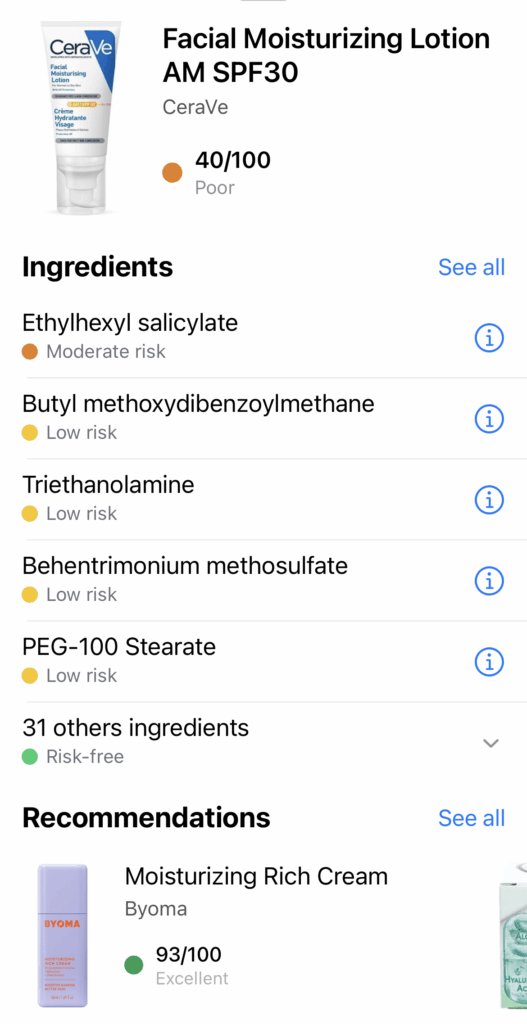
“The sunscreen fear mongering is especially concerning because you’re talking about something that has been proven to cause a problem. With your daily exposure to the sun, absolutely, it is contributing more to an increased risk of cancer. But they’re saying avoid this one ingredient because it is going to cause cancer.
If you multiply the concentration by 500 times, inject it under your skin, and then expose yourself to it 27 times a day, it’s just not the same. But what you’re avoiding because you’re scared of it, is actually what was protecting you in the first place.
When you nitpick ingredients like that, it just creates this never-ending cycle where it’s like you’re damned if you don’t. You’re never going to win because there’s never going to be a single thing that is never going to cause a problem when you exaggerate the concentration or change up the route of exposure. There’s a way to make something look bad no matter how you look at it.”
At the end of the day, not everything in your skincare drawer is secretly toxic, and not every low Yuka rating means it’s safer. Scare tactics might rack up clicks, but they don’t always reflect the science. Instead of falling for fear-based hype, it’s smarter to dig deeper, question the claims, and focus on what actually works for your skin, and is recommended by a dermatologist.


